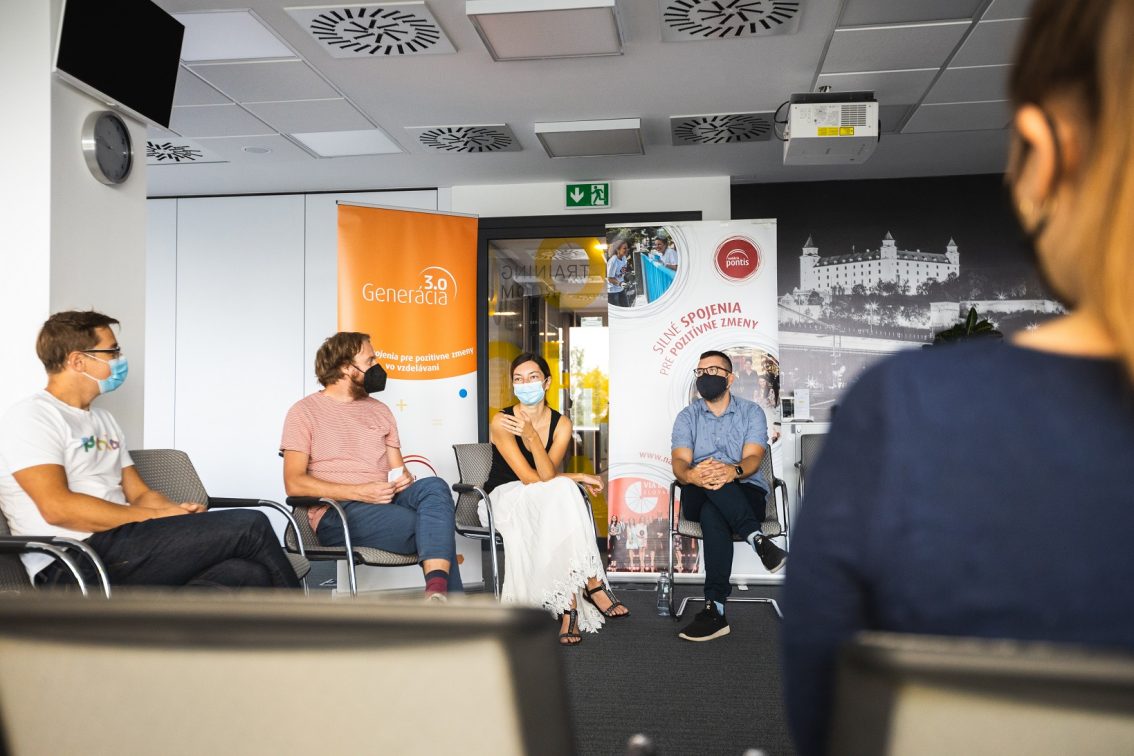How we work with organisations in our EDUaccelerator
How much time do I need to invest? What does participation in the EDUaccelerator programme mean? What kind of mentoring and support will the organisations receive?
The three-month EDUaccelerator is the most alluring for organisations that apply for the Generation 3.0 programme. On top of financial resources, they also gain a personal mentor and tailor-made training workshops. At the same time, we connect participants with impact measurement experts. With the targeted support of these professionals, the organisations are able to move forward in three months, disseminate their educational approaches to more schools, reach many more teachers and students, and create a more sustainable structure of functioning. How do the three months spent in EDUaccelerator look?
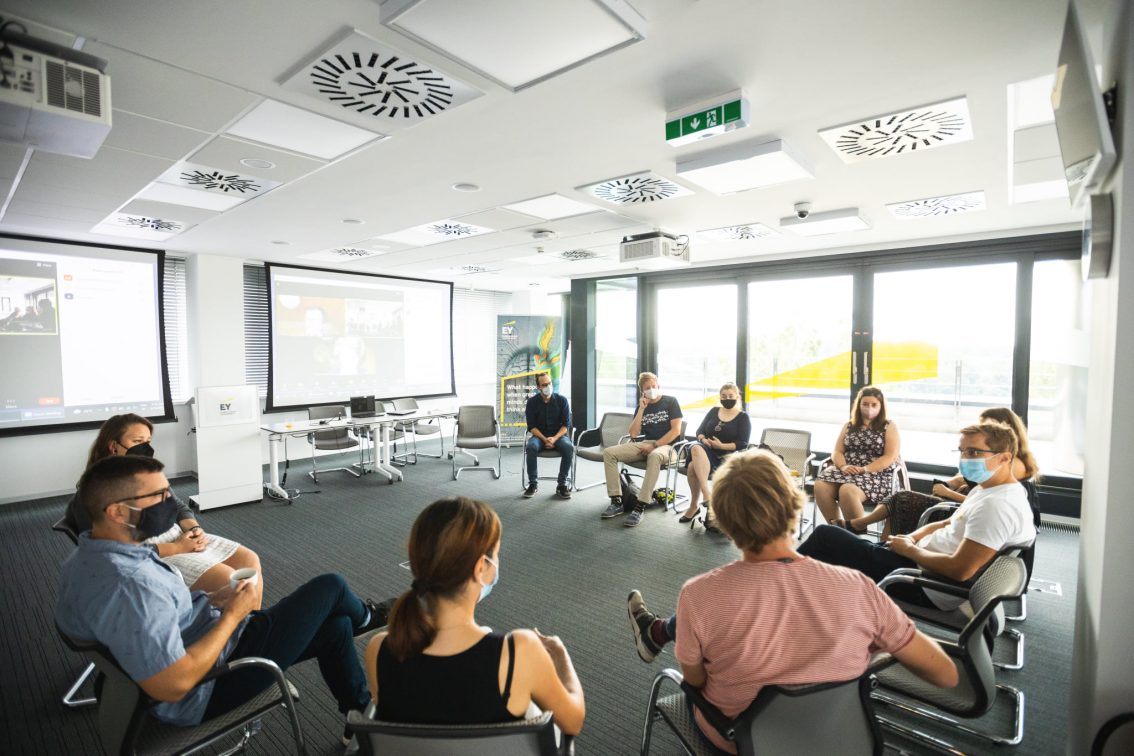
Participants of EDUaccelerator 2021. Photo – Marek Mucha
Working with a personal mentor
At the beginning is the creation of the so-called action plan that the participating organisations develop together with their mentors and representatives of the Pontis Foundation. The plan contains the goals for which the participants should aim and the steps that will lead them. This process is supervised by mentors, i.e. businessmen and businesswomen, who accompany the participants for three months. Their expertise, advice and experience help organisations set up activities so that, besides meeting their goals, they have the potential to reach as many teachers and schools in Slovakia as possible.
The frequency and form of mentors’ meetings with the participants is individual, e.g. once a week. At the meetings, they continuously evaluate whether and to what extent the set plan is being met.
Research goals and working with a researcher
One of the goals of Generation 3.0 is to support activities that are demonstrably sustainable and effective. Therefore, cooperation with researchers in education is an important part of the EDUaccelerator. Just as our mentors, the researchers are selected by the Pontis Foundation. The aim is to match the professional focus of a researcher with the goals of an organisation.
What change should the educational approaches (projects) bring, and for which target group? This is the main question that can help set a research goal and a specific impact measurement strategy. Based on that, the organisations proceed in the following months, or even years after the accelerator, and examine the level of the dissemination of their projects to schools.
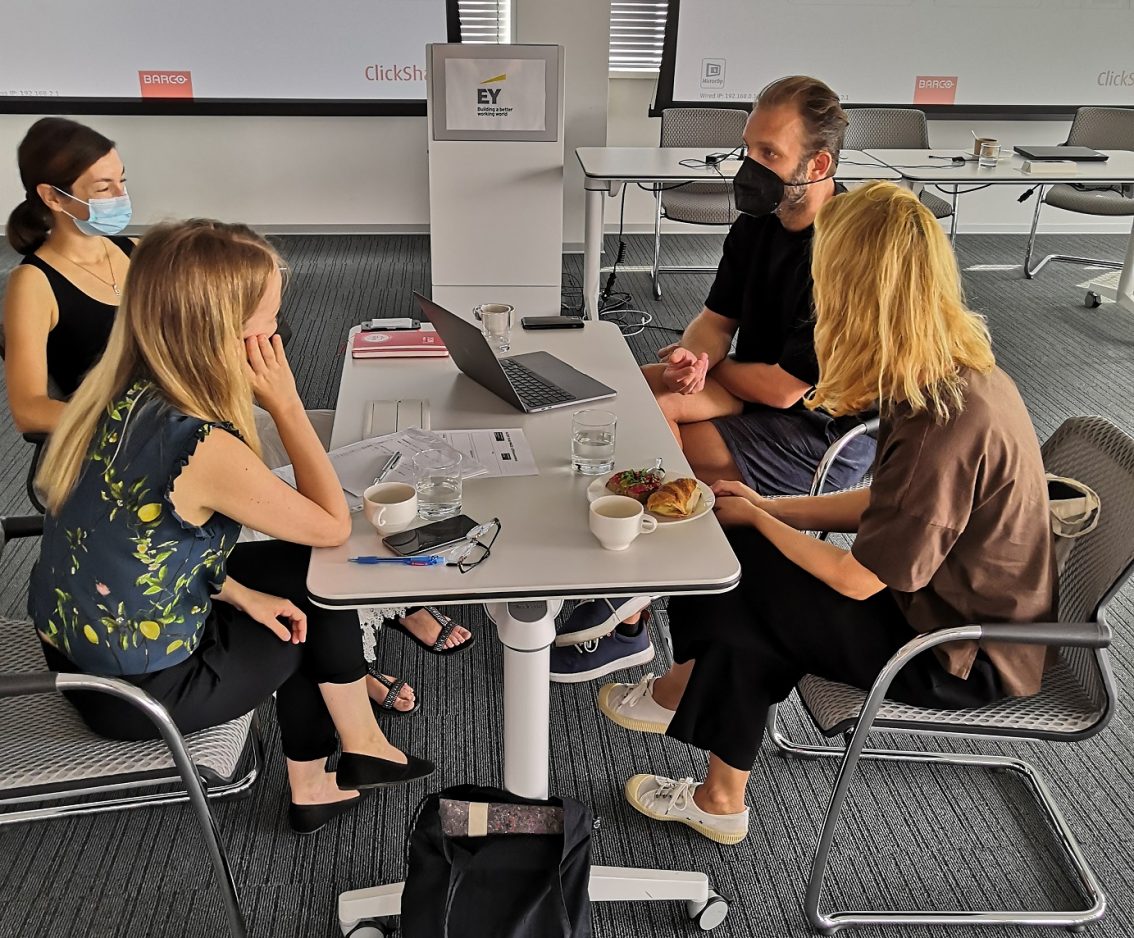
KUBO Media during a meeting with researcher Anna Dráľová.
Participants choose what they want to improve
Organisations can also gain additional training and advice on topics that we select each year based on participants’ preferences. Some are in demand every year, for example, fundraising and communication training, while others vary depending on the needs of the final five participants.
This year, the EDUaccelerator participants could choose from the following options:
– Fundraising. How to develop a fundraising strategy for an organisation? How to make your educational programme known to the public and how to reach a potential donor?
– Business modelling. How to create and test the quality of your business model?
– Impact financing. How to create a product and how and why to transform a charity into a social enterprise?
– Financial planning of the organisation. How to plan a financial year and how to know when to expand your team to further develop the programme?
– PR of an organisation. How to raise awareness about your programme among the general public?
Participants can select three of the five topics. This year, the choice fell on fundraising, business modelling and PR.
The first training took place in October. The topic was covered by two representatives of the Pontis Foundation – Fero Pauliny, Manager for Philanthropic Strategy, and Norbert Maur, Senior Programme Manager for Education. They talked about how donors think, why fundraising is not just about money, or how to find opportunities to reach potential donors.
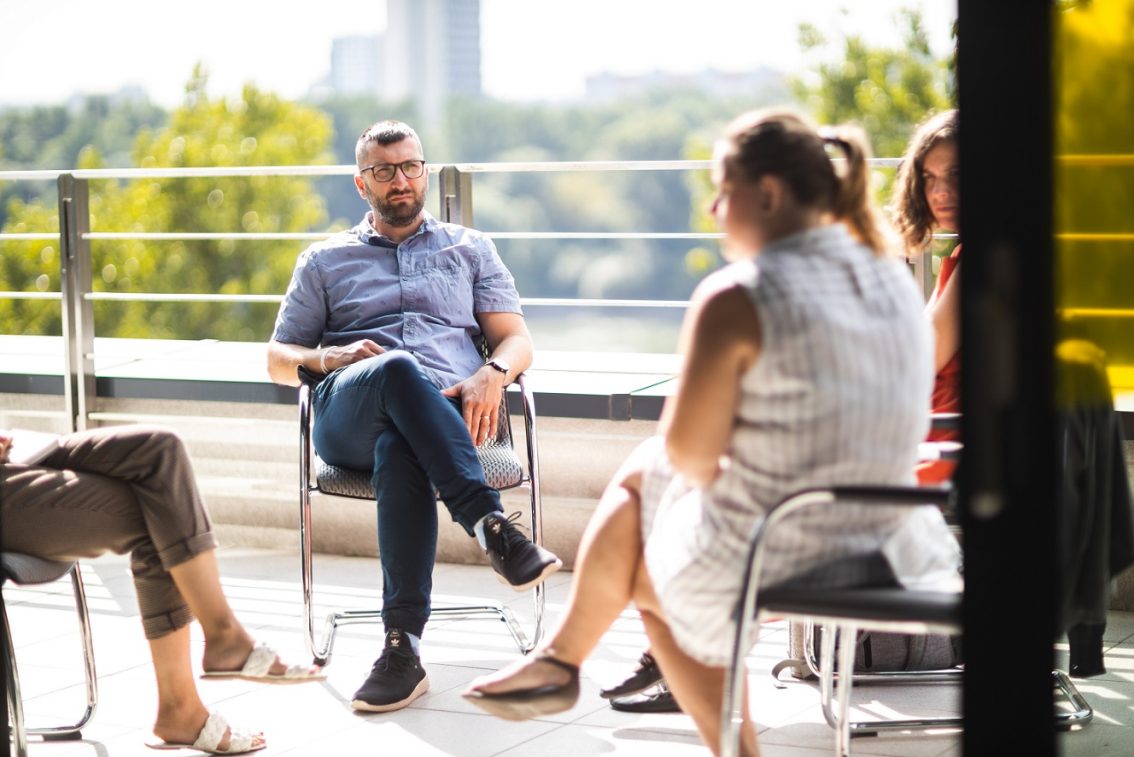
Norbert Maur, Senior Program Manager of the Pontis Foundation, at a meeting with participants of EDUaccelerator 2021. Photo – Marek Mucha
In November, Juraj Kováč from Get Movin! (tr. Rozbehni sa!) talked about business modelling. He covered issues such as how to create and test the quality of your business model.
In December, senior PR manager of the Pontis Foundation, Zuzana Schaleková, discussed the topic of communication and building public relations.
One hundred hours with a hundredfold effect
Programme participants from previous years agree that the hours invested bring the desired results.
“Thanks to the EDUaccelerator programme, we started considering the needs of teachers more when setting up our activities. Until then, we had done it intuitively. Now we think a lot more about things from the point of view of our target groups.” (Milan Šimečka Foundation, EDUaccelerator 2020)
“Providing his expertise and contacts, our mentor helped us a lot. He guided us on how to reach teachers, communicate with them, what content to create for them. Our goal was to attract 40 teachers to our web portal. Approximately 150 teachers from all across Slovakia applied. We had to stop the recruitment process. We consider this the greatest success.” (OpenLab, EDUaccelerator 2020)
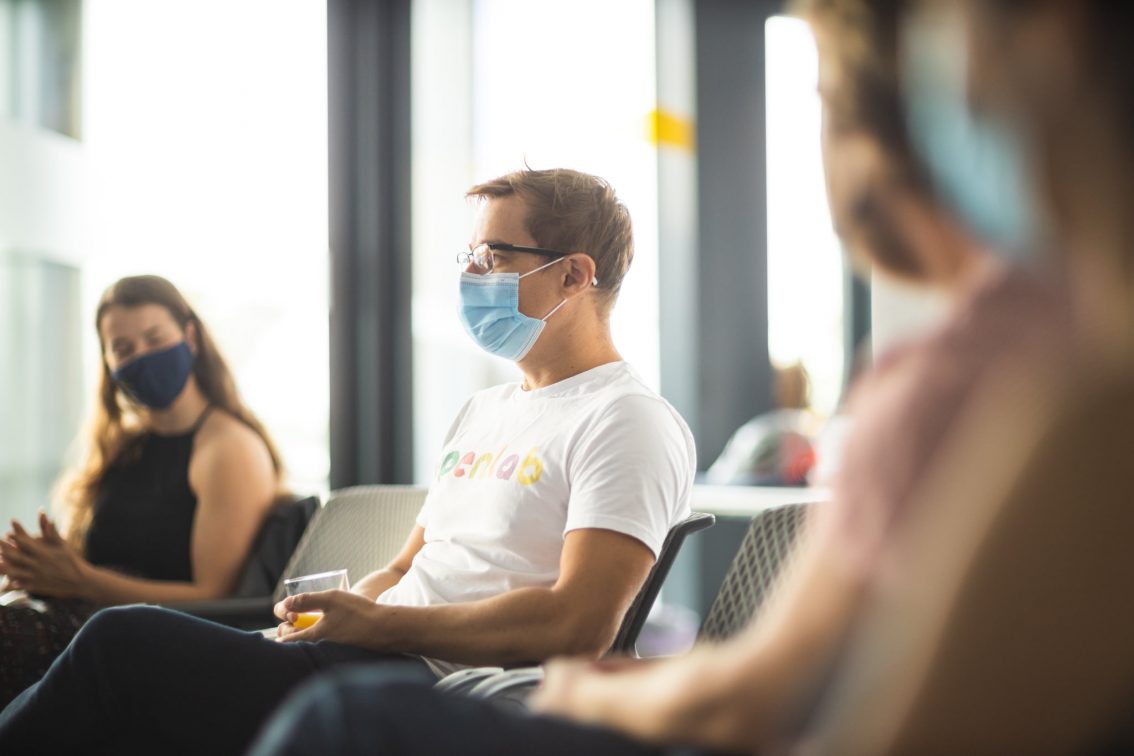
Tomáš Božik from OpenLab. Photo – Marek Mucha
The EDUaccelerator is part of the Generation 3.0 programme, created by the the Pontis Foundation, which seeks organisations with innovative educational approaches, connects them with the educational community, helps them with effective settings and supports them in disseminating their approaches to schools all across Slovakia.




